Road Pricing
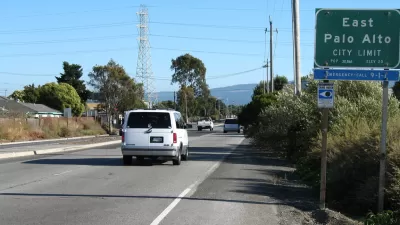
Another Bay Area City Considers Urban Tolling
East Palo Alto has long suffered the toll that transbay traffic has imposed on this gateway to Silicon Valley from the East Bay in the form of air pollution and traffic congestion. Now the city is considering tolling the traffic.
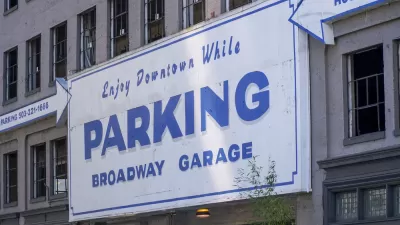
Portland Ready to Experiment With New Forms of Road Pricing
A new task force formed in Portland, Oregon will consider ways to make automobile use more expensive, including parking pricing, area and time-based fees, fleet charges, road user charges, cordons, and freeway pricing.

Stop Giving Away Valuable Public Assets! A Fiduciary Obligation for Road and Parking Pricing
Cities significantly underprice their roads and parking facilities, forcing local taxpayers to subsidize out-of-town motorists. Municipal officials have an obligation to better manage these valuable public resources.
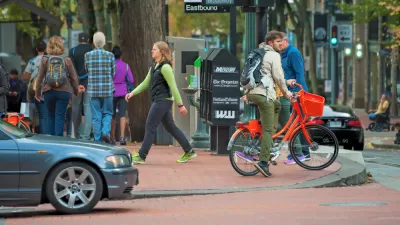
Searching for Equitable Road Pricing in Portland
A new task force is being assembled in Portland to implement new road pricing mechanisms that convinces people to ditch their cars for more efficient modes of travel, while also ensuring low-income communities don't bear too much of the burden.
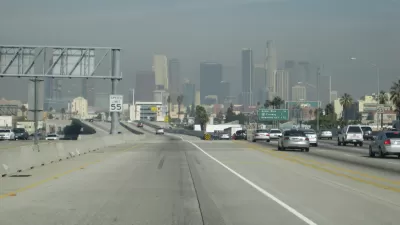
If Road Pricing Is Inherently Unfair and Regressive...
Road pricing has its faults as a revenue measure, but it needs to be compared to ten elements of the current system of paying for transportation, including hidden subsidies, says Joe Cortright, an urban economist with Portland-based City Observatory.
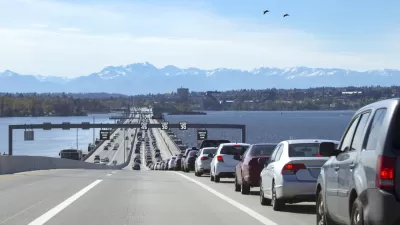
Road Pricing Equity Report and Toolkit
A new report and toolkit helps policymakers and equity advocates apply comprehensive analysis to road pricing, considering affordability, accessibility and community health, and identifies way to achieve equity goals through pricing reforms.
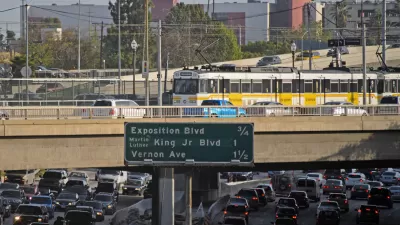
Equity Considerations Delay Congestion Pricing in Los Angeles
After discussing a staff report on road pricing at their Jan. 24 meeting, Los Angeles County Metropolitan Transportation Authority directors paused to weigh the equity implications of charging motorists to drive on roads.
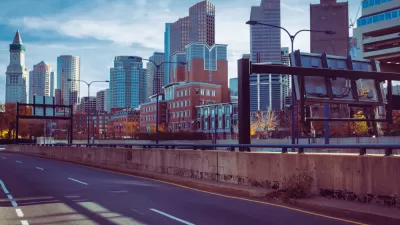
Could Boston Join Seattle in Proposing Congestion Pricing?
The compelling reason behind Boston's looking at congestion pricing is traffic congestion, unlike Seattle where it is being viewed as a major way to reduce greenhouse gas reductions and fund public transit.

Road Pricing Shouldn't Stop at Ride Hailing Services
Extra charges for Uber and Lyft rides isn't enough to decrease traffic and speed public transit Joe Cortright argues in City Observatory.

New York City Congestion Pricing Plan Deserves to Move Forward
Congestion pricing, done right (details matter), mitigates a downside of urban density: traffic congestion. Professor John Rennie Short explores the history of congestion pricing, its application in Singapore and London, and why it's good for NYC.
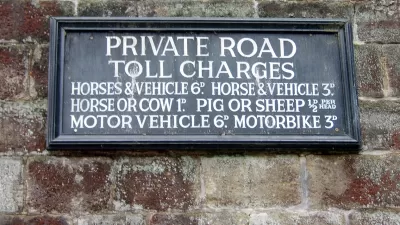
Defending Road Pricing from Public Opinion
Access Magazine takes a deep dive into congestion management, explaining the reasoning behind a publicly unpopular strategy: road pricing.
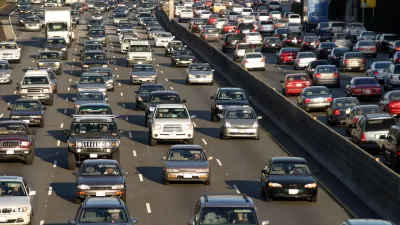
Why Elon Musk Is Wrong about His Boring Solution to L.A.'s Traffic Congestion
Herbie Huff of the UCLA's Lewis Center and Institute of Transportation Studies pens a well-reasoned opinion for the Los Angeles Times as to why a market-based strategy to manage demand is the best approach to traffic congestion in Los Angeles.
Congestion Pricing: The Key to Better Transit?
Noah Kazis describes the explosive success of transit systems in London, Stockholm, and Singapore, and suggests that charging motorists for road use is the secret ingredient that keeps ridership high and public support strong.
Bi-Partisan Attack on LA HOT Lanes
The Democrat, Maxine Waters, objects to the 10 & 110 Freeway high occupancy toll (HOT) lanes on the basis of equity while Rep. Gary G. Miller, the ranking CA Republican on the House Transportation Committee, sees it as "double taxation".
The Selfish Automobile
Why are otherwise generous and smart people sometimes selfish and irrational?
24% Reduction in Emissions Possible by 2050
Changing changing transportation habits and land-use patterns in America could result in a 24 percent reduction in carbon emissions by 2050, says a new report from Cambridge Systematics.
Moving Cooler Report: Solutions and Criticisms
The new report, Moving Cooler: Transportation Strategies to Reduce Greenhouse Gas Emissions, written by Cambridge Systematics and sponsored by a variety of organizations, identifies several dozen transportation climate change emission reduction strategies, including improvements to efficient modes (walking, cycling and public transit), pricing reforms and smart growth land use policies.
Are planners ready for the Drew Carey (not so free) freeway?
Technology creates new challenges and opportunities, and this came home to me a couple of weeks ago when I was previewing a rough cut of Gridlock: Hell on Wheels, a video on traffic congestion released by Reason Foundation today. In the video, Comedian Drew Carey makes the following off-the-cuff comment on a morning drive-time radio show: “I would love to own a freeway in LA.”
Pagination
Urban Design for Planners 1: Software Tools
This six-course series explores essential urban design concepts using open source software and equips planners with the tools they need to participate fully in the urban design process.
Planning for Universal Design
Learn the tools for implementing Universal Design in planning regulations.
Ada County Highway District
Clanton & Associates, Inc.
Jessamine County Fiscal Court
Institute for Housing and Urban Development Studies (IHS)
City of Grandview
Harvard GSD Executive Education
Toledo-Lucas County Plan Commissions
Salt Lake City
NYU Wagner Graduate School of Public Service


































